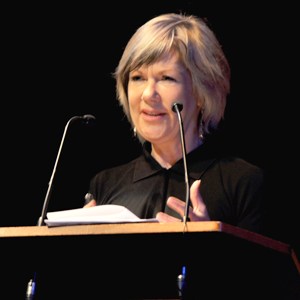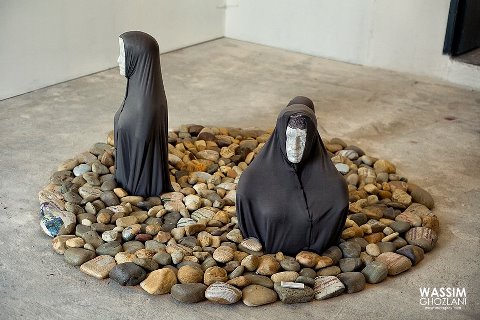Artistic freedom under threat, says Southbank director

An Index on Censorship conference has heard of the pressures on the arts in the UK today. Daisy Williams reports
(more…)

An Index on Censorship conference has heard of the pressures on the arts in the UK today. Daisy Williams reports
(more…)
I spent the morning at the Crown Prosecution Service’s offices in London, taking part in a round table discussion on guidelines for prosecuting offences committed on social media and emphasising recent prosecutions impact on free speech.
The consultations, chaired by DPP Keir Starmer — the most senior prosecutor in England and Wales — are taking place in a week when social media prosecutions are very much in the news. On Monday, Matthew Woods was sentenced to 12 weeks in prison for unpleasant, distasteful remarks on Facebook about missing Welsh schoolgirl April Jones. On Tuesday, Azhar Ahmed was given community service and a £300 fine for suggesting — again on Facebook — that British soldiers should burn in hell.
Index condemned these prosecutions and that of Paul Chambers, whose quip that he would blow Doncaster’s Robin Hood airport “sky high” landed him in deep trouble before the Lord Chief Justice ruled that his joke should be taken as just that.
It’s clear to many that there is a problem with the law and social media, in particular the use of Section 127 of the Communications Act, which states that a person is guilty of an offence if she “sends by means of a public electronic communications network a message or other matter that is grossly offensive or of an indecent, obscene or menacing character.”
At the meeting today, the DPP seemed to share Index’s unease with the use of this law, pointing out that its genealogy dates back to the 1930s, and laws to protect telophone operators from abuse.
This was certainly encouraging to hear. But Starmer was keen to point out that prosecutors can only work within the existing laws — it is up to others to change the law.
What was not so encouraging was his view of the Lord Chief Justice’s opinion offered in the Twitter Joke Appeal.
In his ruling (par 28), Baron Judge commented that “Satirical, or iconoclastic, or rude comment, the expression of unpopular or unfashionable opinion about serious or trivial matters, banter or humour, even if distasteful to some or painful to those subjected to it…” should not be interfered with by the Communications Act
Many of us had hoped that this ruling would set a precedent, or at least provide guidance for police and prosecutors in future cases. But when I raised this with the DPP today, he suggested that he did not feel that the Lord Chief Justice had any intention of that principle being extended beyond the specifics of the Twitter Joke Trial.
To me this seems odd, as it is clearly a comment on the broad purpose of the Communications Act.
This point can be stressed when the CPS launches its public consultation in November.
On a slightly more positive note, the DPP was willing to entertain the idea that “not intended to be taken seriously” could be seen as a mitigating factor in decisions on whether to prosecute.
There were some other notable aspects in the meeting.
As Dan Sabbagh has reported and I can confirm, the DPP seems very keen on greater involvement/responsibilty for Internet Service Providers in policing content. But given the broad nature of the term “service provider”, this could prove difficult to pin down (as a representative of the Internet Service Providers’ Association pointed out).
The DPP also was keen to look into the distinction between a “victim” and an “offended bystander”, in cases where endless retweets and media attention can suddenly escalate a mere tweet into a national news story.
It’s hugely important for anyone who uses the web but especially those with a Facebook or Twitter account that the CPS gets this right. The future of free speech is at stake.
Padraig Reidy is News Editor at Index on Censorship
In Tunisia, politicians and the people are abandoning freedom of expression. In a conservative society, Islamists’ obsession with blasphemy and the opposition’s passivity in defying an illiberal constitutional clause are placing free speech and Tunisia’s democratic transition under threat.
After years of being deprived of it, the Tunisian public agrees that freedom of expression is a fundamental right which needs to be guaranteed by the country’s new constitution. Six assembly committees which were elected last February have separately drafted different sections of the text which is yet to be presented for debate and voted in the 217-member constituent assembly. An absolute majority is required for the adoption of each article. MPs will then have to approve the entire draft by a two-thirds majority.
“Freedom of expression, opinion, media and creativity is guaranteed,” states article 26 of Tunisia’s draft constitution written by the rights and liberties assembly committee. Article 3 contradicts it saying: “The state guarantees freedom of religious belief and practice and criminalises all attacks on that which is sacred.”
But in August the Islamist Ennahdha party filed an anti-blasphemy bill which criminalises “curses, insults mockery, and desecration” of Allah, the Prophets, the three Abrahamic books, the Sunnah (the practices of the Prophet Muhammad), churches, synagogues and the Kaaba (the most sacred building in Islam). The bill also forbids pictorial representation of God and Prophet Muhammad.
Sadly, secular politicians are not pushing back against these new threats to free expression. When Islamists portray themselves as the guardians of the “sacred” in order to score points against their rivals, secular politicians face a dilemma. Should they stand up for their secular values and oppose blasphemy laws — and so risk losing popular support among the populace — or stay silent?
They have chosen silence.
In an essay entitled Speaking on the Unspeakable: Blasphemy & the Tunisian Constitution, columnist Monika Marks condemns their decision to stay mute:
Groups that would typically be expected to oppose Article 3, like the Tunisian League of Human Rights, journalists’ associations, and secularly oriented political parties, have kept silent — likely for fear of losing legitimacy with Tunisian society, which tends to view offences against Abrahamic faiths in general, and Islam in particular, as unacceptable.
Free speech advocate and journalist Henda Hendoud shares the Marks’ view and argues that the opposition is not strong enough to tackle the issue of religion and freedom of expression at the National Constituent Assembly.
“I think that if there is going to be pressure and controversy regarding article three, it will come from the civil society, which is somewhat more independent and distant from political calculations,” she says.
The view that freedom of expression must be regulated to protect “sacred religious symbols” is widely held in Tunisian society. It is a Sunni Muslim-dominated country and religion still plays a major role in the people’s daily lives despite 56 years of secular dictatorship under the presidency of Habib Bourguiba and his successor Zine El Abidine Ben Ali. It is likely that Tunisia’s new constitution will criminalise blasphemy, and the public will not protest because “protection of the sacred” and the “sacred” are important to them.

A sculpture by Nadia Jelassi depicting the stoning of women at this summer’s Tunis Spring Arts Fair
Only a small group of free speech advocates, journalists and activists regard blasphemy laws as a curb on free expression. They are worried new blasphemy legislation will see similar incidents to that which took place at the Spring of Arts fair between 1 and 10 June this year, when ultra-conservative protesters clashed with police over an exhibition which they claimed included “blasphemous” artworks. The government and, surprisingly, the Minister of Culture blamed the fair for attacking Tunisians’ sacred religious symbols.
The “blasphemy” pretext was enough to bring “public disorder” charges against two artists, Mohamed Ben Slama and Nadia Jelassi. Ben Slama exhibited an artwork illustrating the “Praise God” phrase inscribed by ants, while Jelassi displayed sculptures depicting the stoning of women.
In late June, Hendoud helped set up a support committee for Ghazi Beji and Jabeur Mejri, two young men sentenced to seven and a half years in prison for publishing cartoons of the prophet on the internet. “The political parties are still not talking about the case of Ghazi and Jabeur,” she says. “However, the two young men are supported by Tunisian and international civil society.”
Blasphemy can be used as a pretext to stifle freedom of expression and pave the way for the comeback of dictatorship. Former dictator Ben Ali exiled, jailed and tortured his Islamist political opponents, who today rule the country, under the pretexts of “national security” and “extremism”.
Criminalising blasphemy is only going to deepen divisions in a country which endured decades of oppression and abuse.
ALSO READ: A NEW ARGUMENT FOR CENSORSHIP?
Index has today called for the British government to deliver on its promise of real libel reform. Here Daisy Williams lists five cases demonstrate how libel law can stifle debate, curtail criticism and even endanger lives (more…)